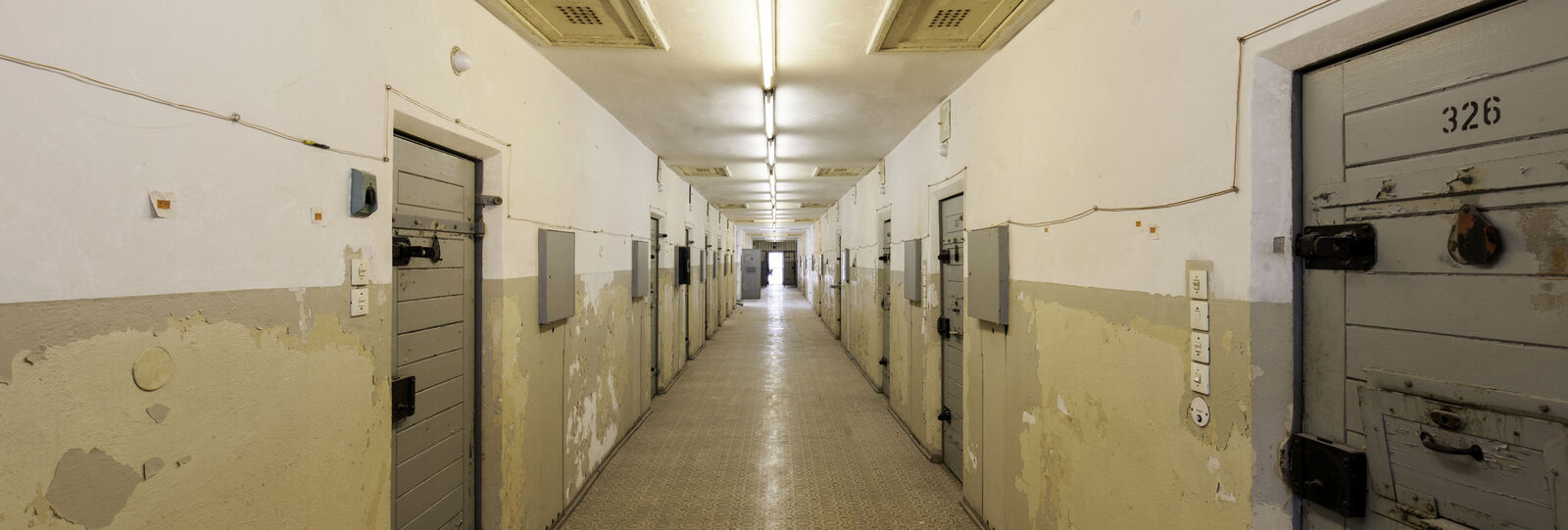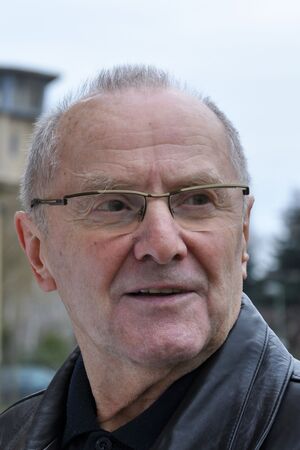Peter Rüegg
Peter Rüegg was born in Berlin in 1933. He moved to East Berlin in 1948 and became a full-time youth functionary with the Free German Youth (FDJ) a year later. At the age of 18, he joined the Socialist Unity Party of Germany (SED). In 1953, Peter Rüegg responded to a call to voluntarily join the "Armed Forces of the GDR" and joined the "German Border Police". After attending officer training school, he became a sub-lieutenant, later a lieutenant and deputy company commander.
Peter Rüegg played a critical role in discussions about the dismal situation within the border police. As a result, State Security arrested him. In August 1959, he was sent to the "submarine" at Berlin-Hohenschönhausen for six months and spent a further twelve months in the Stasi remand centre in Potsdam. The Stasi wanted Peter Rüegg to be sentenced to death in a large-scale show trial. However, the corresponding proposal was not signed by Erich Mielke, Minister for State Security. Peter Rüegg was finally sentenced to seven years in prison for "activities threatening security and sabotage", which he had to serve at the Bautzen and Torgau prisons. In April 1963, he was released early on parole as part of an amnesty.
He then completed an evening course to become an engineer economist in civil engineering and subsequently worked to preserve monuments and was involved in the GDR Cultural Association. As of 2006, he had been guiding groups of visitors through the Berlin-Hohenschönhausen Memorial.
Peter Rüegg died in Berlin in October 2021.
Further information
- Peter Rüegg, Wenn Mielke unterschrieben hätte... Vorschlag: Todesstrafe, Berlin 2005.
- Peter Rüegg, Sozialismus hinter Gittern. Schicksale aus Ostdeutschland, Berlin 2018.
The publications are available at BuchHandlung89: BuchHandlung89

